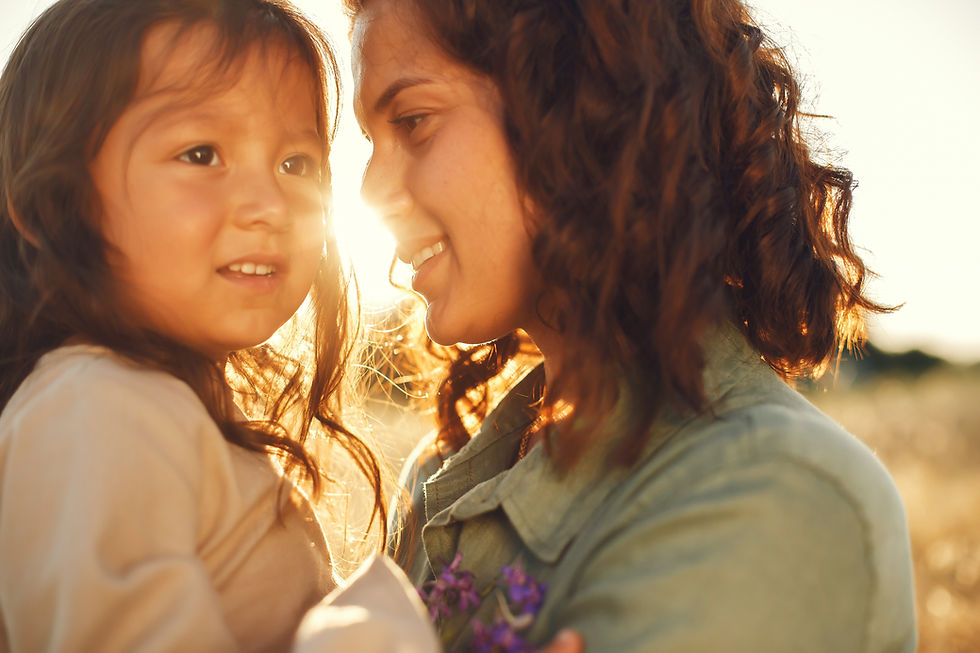Being in the Question
- Dr Maxine Therese

- Feb 28, 2018
- 4 min read
Updated: Jan 9

I have always been interested in asking and exploring the big questions. When I was a child my questions were not always welcomed by the adults in my life. In fact, sometimes even the most simple questions were hard for others to answer.
When I was growing up children were regarded in a limited way, and there was not much time or space to process feelings. It seems to me this is a common experience for many adults as they reflect on their own childhoods. The questions we ask as children however, remain like a touchstone for us and serve as a guide as we travel through life. We are all seeking in a way, attempting to find answers to those questions we have, as we try to make sense and or meaning of the things that happen in our lives. In essence, we are all attempting to know thyself. This curiosity is present even from the very beginnings of life.
Children know more than we realise, or give them credit for.
Children question as an innate response to trying to understand the things they feel. When what a child feels is counter to what they are told to feel, or how they are told to think about those feelings, an incongruence happens in the child. When there is incongruence in this way, we see common childhood issues emerge - issues such as troubling behaviours or emotional outbursts.
Supporting children to explore the questions they have therefore, is vital to their wellbeing, and keeps them connected, balanced and well. However, because certain behaviours and some emotional expressions of children can be difficult for adults to deal with, they are often not addressed in the way a child needs.
We may even attempt to change our children's behaviours and issues - however we need to know that any attempt to examine the child or change the child should begin with an attempt to examine ourselves first.
"When we continue to ignore the various expressions of our children (as merely bad’ behaviour, for example), and do not explore the associated themes of why the child is responding the way they are, we are, albeit unconsciously, teaching them dysfunctional ways of dealing with their concerns. Because by blaming the child we are not taking responsibility for the ways in which the child is a mirror for its environment and we are projecting our own past onto the child."
Learning how to hold the space for a child's expression, or in effect, learning to be open to hear what the child really feels about a situation or issue, is a skill that we can all learn.
'Being in the Question' has become a bit of a trademark phrase that I use and one I have written about extensively - and also appears as a chapter in the above-mentioned book, to explain an affirmative relational approach for adults to use with children. Over time, and over the course of my research, I came to realise that unless we as adult caregivers meet children's responses to life from a space of self awareness and curiosity, we can project a lot of unnecessary interpretations onto our children's experience.
Being in the Question with children establishes a space for the emergence of the child's feelings and thoughts and offers a way of supporting the child to get to know the importance of the things they feel, even if there is no way of knowing what that feeling means at the present moment.
In order to hold the space for our children and others we first must make the space.
This requires an intention to be present and also a commitment to attune with your child.
From this space we can ask and enquire into the child’s experience by asking ourselves a question as a first point of relating.
In those times when you are experiencing a strong emotional response from, or even a hostile behaviour in your child, If you can pause for a moment then you can ask ,
“What might I have to be feeling to respond in that way?”
This self reflection guides one to look to one's own feelings first and allows an energetic space in which to consider how one might feel in order for them to respond in such a way. Then from this point, one can begin to consider how the child might feel, what the child might be experiencing, and also what the origin of the response might be.
This practice attunes you with the child - rather than focusing on the behaviour or deciding that you know more than the child.
As you do this, you meet the child from an open space of curiosity, rather than a closed space of trying to dominate or restrict the child's expression.
You can see in this way, this approach begins with adult caregivers adopting a more affirmative mindset in regard to children's behaviours in the first place. When we come to know that all children's actions are purposeful and arise in response to an environment that is not supporting them, we can then ask them what they need and support them in the best way we can to meet this need.
When children are encouraged to feel their feelings, and know that they can safely explore the questions that arise when feelings do not make any 'sense', then we are assisting them to know themselves. The child naturally experiences wellbeing when their feelings and thoughts are aligned.
Our children are inviting us every time they are imbalanced by life to 'be in the question' with them - from this space children learn to reconnect within themselves and come to know thyself.











Comments